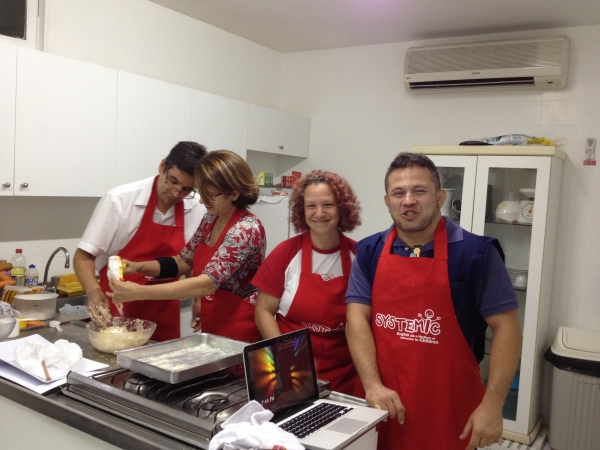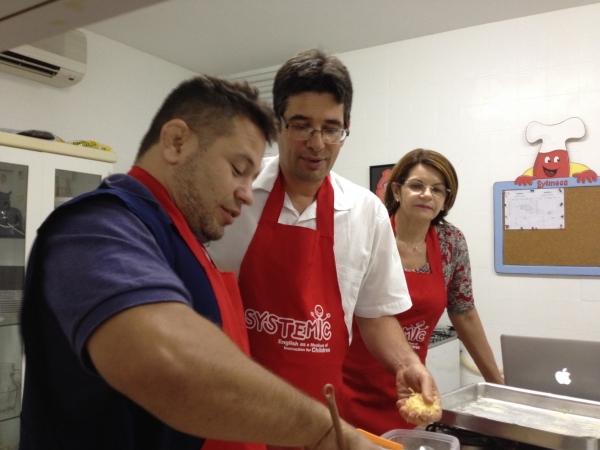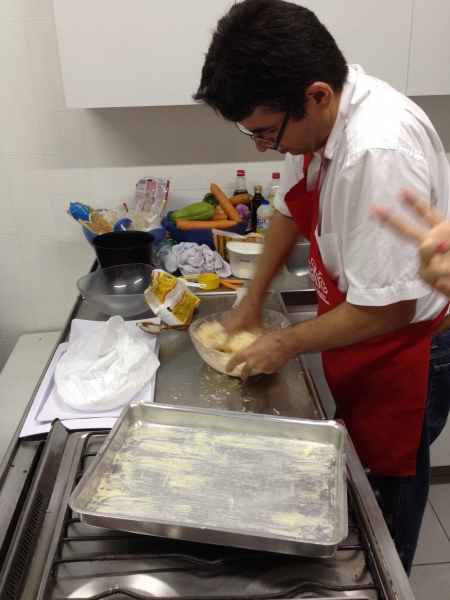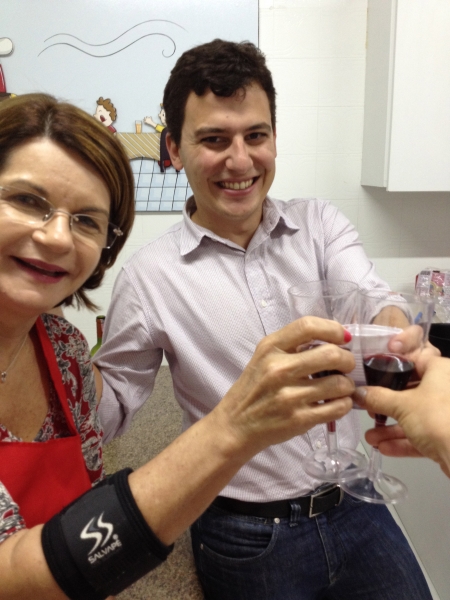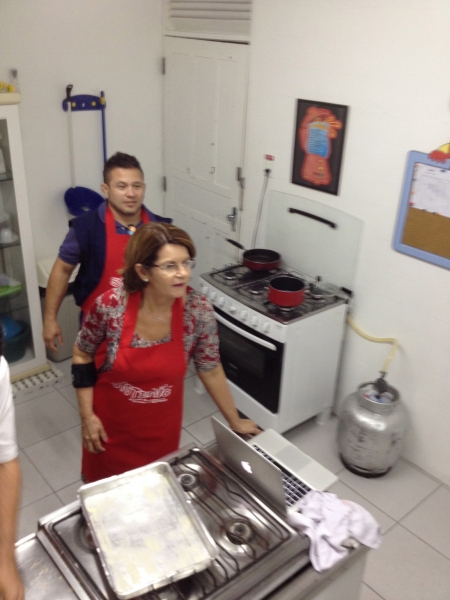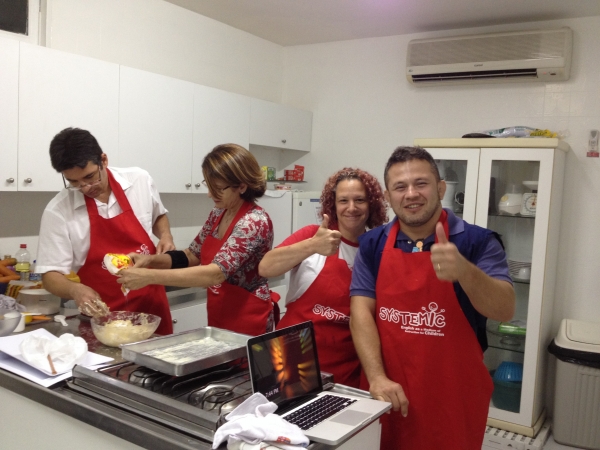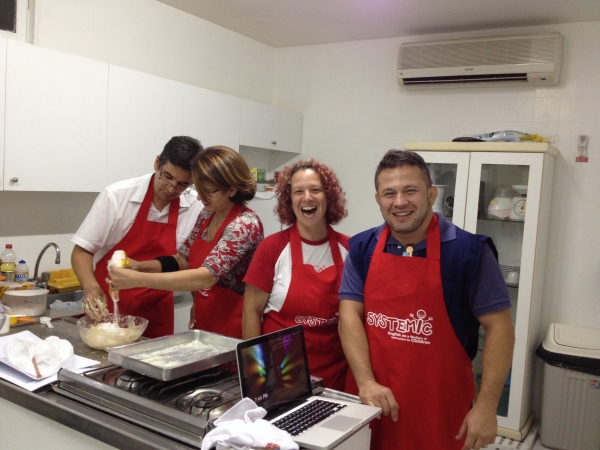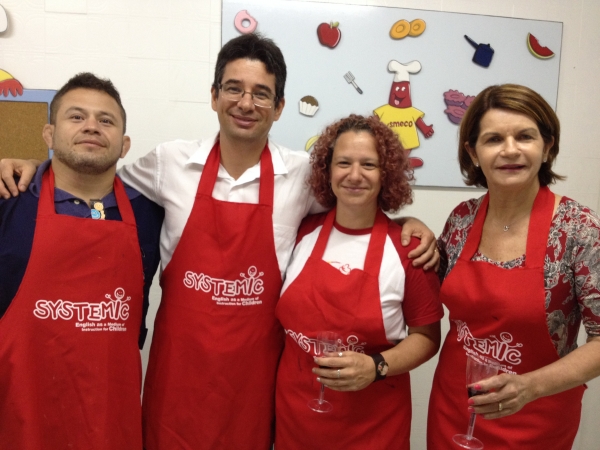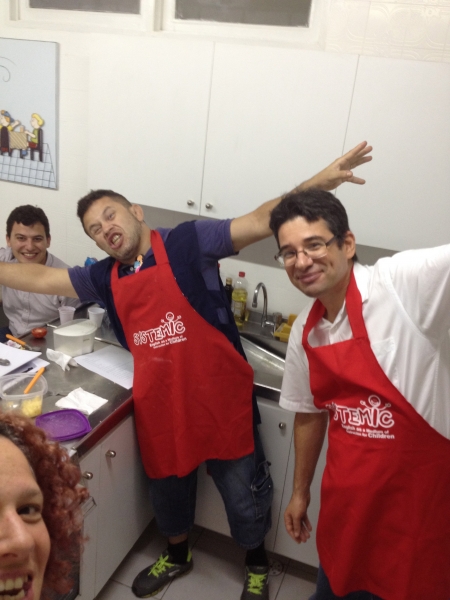I help out in some classes at an English school across the street from my Portuguese school. (There are, in fact, approximately 5 English schools in walking distance around here. I’m surprised more people can’t speak it!) It’s one of the highlights of my week, not just because I have a chance to speak English for a while and give my mushy brain a break, but the students and teachers are all super awesome people and I have a lot of fun with them both in and out of the school.
During one of the classes, we came up with the fabulous idea to have a cooking-themed class, and one of the students, Marcos, offered to teach us how to make the original Minas Gerais pão de queijo – one of the iconic Brazilian foods. And luckily for you all (sort of, because you might find yourself addicted), I managed to get a copy of the recipe in English!
Minas Gerais Pão de Queijo (Cheese bread)
Ingredients:
3 cups sour mandioca flour (polvilho azedo)
2 cups of grated semi-aged cheese (If you can get it, get the cheese from Minas Gerais; otherwise, a semi aged cheddar should suffice)
1 cup of milk
1/4 cup of vegetable oil
1 tablespoon of salt
2 eggs
Directions:
Preheat the oven to about 350 degrees.
Put the flour in a bowl. Heat the milk, oil and salt until it just starts to boil. Pour the heated milk mixture over the flour to scald it and then mix them to start forming a dough. Mix in the eggs until combined, followed by the cheese and mix thoroughly. The dough should not be too sticky; add more flour if necessary.
Roll the dough into small 1 inch balls and place in a baking pan or cookie sheet. Heat until they start to turn brown on the bottom and are the consistency of bread on the top. Remove from oven, let cool a few moments and eat! For a truly cheesy experience, add some of any leftover grated cheese inside one of the rolls.
The trick to this recipe I think is getting the right flour. It is a very fine sour flour called ‘polvilho azedo’ (Hikari makes a decent one, and you can find it on Amazon). I’m not sure exactly what it’s made from. The cheese is cheddar-like but white; a white cheddar or similar aged cheese should work if you can’t find ‘Minas cheese’ from Minas Gerais (although Marcos insisted that it was the key ingredient!)
Here’s a couple pictures of the cheese bread making:

